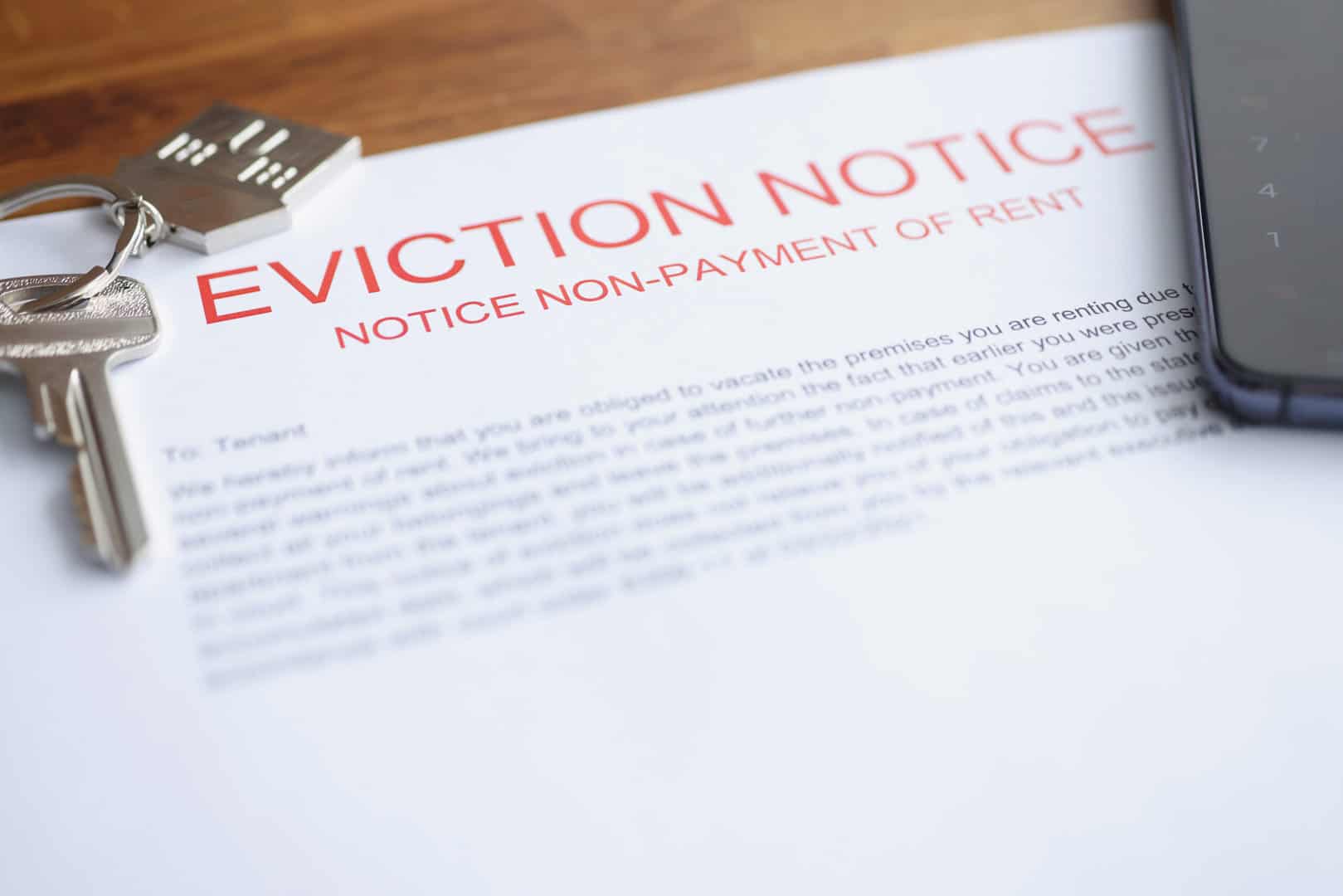What Are the Usual Cases Managed by an Eviction Attorney in Occupant Disputes?
Expulsion legal representatives play a crucial duty in attending to an array of lessee disagreements that can emerge in rental arrangements. These specialists browse intricate legal structures to represent both property owners and renters, guaranteeing that all parties understand their civil liberties and commitments. Understanding the nuances of these disagreements can brighten the wider ramifications for tenant rights and proprietor duties.
Non-Payment of Lease
Non-payment of rental fee is a common issue that can lead to intricate legal disputes in between property managers and renters. When lessees stop working to pay their lease on schedule, landlords might deal with economic stress, prompting them to start lawful procedures. The expulsion process usually starts with a composed notice, requiring payment within a specified duration. If the lessee does not conform, the landlord might declare eviction in the ideal court.
In numerous territories, the lawful structure bordering non-payment of rent is developed to secure both events. Tenants may have defenses offered, such as affirming uninhabitable living conditions or inappropriate notice. However, property owners must comply with rigorous procedures mandated by legislation, consisting of supplying ample notice and filing the required paperwork (eviction attorney miami).
An expulsion lawyer plays an essential duty in browsing these disputes. For tenants, lawful representation can offer understanding right into possible defenses and assist work out favorable end results.
Lease Infractions
Lease violations stand for a considerable worry in landlord-tenant connections, as they can lead to disagreements and prospective expulsion procedures. These violations happen when tenants fall short to stick to the terms described in their lease arrangements. Usual examples include unauthorized subletting, failure to preserve cleanliness, maintaining pets without authorization, or participating in disruptive actions that affects various other renters.
Landlords have a lawful obligation to attend to these violations quickly - eviction attorney miami. Typically, they will release a written notice to the occupant, detailing the particular violation and providing a stipulated duration for correction. If the tenant fails to conform, the proprietor may initiate expulsion procedures, which often requires lawful treatment
Expulsion attorneys play an important role in these circumstances by making sure that the expulsion procedure adheres to regional legislations and policies. Additionally, tenants encountering accusations of lease violations might look for legal advice to object to the claims or bargain terms to stay clear of eviction.
Wrongful Expulsion Cases
Wrongful eviction insurance claims are an important element of landlord-tenant law, resolving scenarios where a renter is removed from a rental residential or commercial property without lawful reason. Such claims commonly emerge when property managers fail to adhere to appropriate lawful procedures throughout the eviction procedure, including not giving the required notice or conducting expulsions without a court order.
The legal structure bordering wrongful eviction differs by jurisdiction however generally supplies renters with the right to contest an eviction if it does not have a valid factor or if due procedure was not observed. Typical premises for wrongful eviction insurance claims consist of retaliatory actions by the proprietor, eviction based on biased reasons, or eviction for factors that violate regional or state laws.
In pursuing a wrongful eviction case, renters might look for various treatments, consisting of reinstatement to the rental property, damages for shed belongings or emotional distress, and lawful costs. An eviction attorney plays a critical role in these cases, assisting occupants in collecting proof, browsing court procedures, and supporting for their civil liberties.
Recognizing the subtleties of wrongful eviction cases is important for both renters and property owners to guarantee compliance with the law and to shield their corresponding rate of interests within the rental connection.
Tenant Civil Liberty Issues
Lots of occupants might be not aware of their legal rights, which can result in exploitation and unfair therapy by property managers. Comprehending tenant civil liberties is vital for preserving a fair rental partnership and protecting oneself from possible misuses. Typical lessee legal rights consist of the right to a habitable living atmosphere, protection versus discrimination, and the right to personal privacy.
Tenants deserve to request essential repair work and upkeep, and property managers are legally bound to address these problems immediately. Additionally, lessees are safeguarded under reasonable housing legislations, which ban discrimination based on race, sex, faith, and various other factors.
In addition, renters can personal privacy, meaning property owners can not go into the rental without proper notice, except in emergency situations. Numerous renters are likewise not aware of their civil liberties concerning down payment, consisting of the need a knockout post for landlords to return deposits within a certain duration and give itemized reductions for any kind of problems.
When disagreements arise over tenant rights, an eviction lawyer can provide essential support and depiction to aid occupants insist their legal rights and navigate complicated legal situations. Awareness of these civil liberties encourages lessees to stand against unfair practices and secure their real estate security.
Building Damages Conflicts
Home damage disputes often emerge between landlords and lessees, complicating the rental relationship and possibly resulting in legal activity. These conflicts generally center around cases of problems incurred throughout the tenancy that go beyond typical wear and tear. Landlords might seek compensation for repair services they believe are the outcome of renter neglect, while tenants might contest such cases, suggesting that the damages were pre-existing or an outcome of factors past their control.

Oftentimes, arbitration might deal with disagreements without turning to litigation, saving both parties time and sources. If unsettled, these disputes can rise other into expulsion proceedings, highlighting the importance of legal depiction in safeguarding the civil liberties and rate of interests of both proprietors and renters.
Verdict
Eviction legal representatives play an important duty in fixing lessee disputes by resolving different usual situations, consisting of non-payment of rent, lease infractions, wrongful eviction claims, occupant civil liberties issues, and building damage conflicts. Their proficiency helps with a far better understanding of legal civil liberties and duties for both property managers and tenants. By navigating the intricacies of eviction processes and supporting for fair treatment, expulsion legal representatives contribute considerably to keeping justice within the rental real estate system.
If the tenant does not comply, the property owner might submit for expulsion in the ideal court.

In addition, occupants dealing with accusations of lease violations might seek lawful guidance to contest the cases or work out terms to stay clear of expulsion. Landlords may look for compensation for fixings they believe are the outcome of renter negligence, while occupants may contest such claims, saying that the damages were pre-existing or an outcome of factors past their control.
Eviction attorneys play an essential duty in fixing lessee conflicts by dealing with numerous common situations, consisting of non-payment of rent, lease offenses, wrongful eviction insurance claims, lessee rights problems, and residential or commercial property damages disagreements.